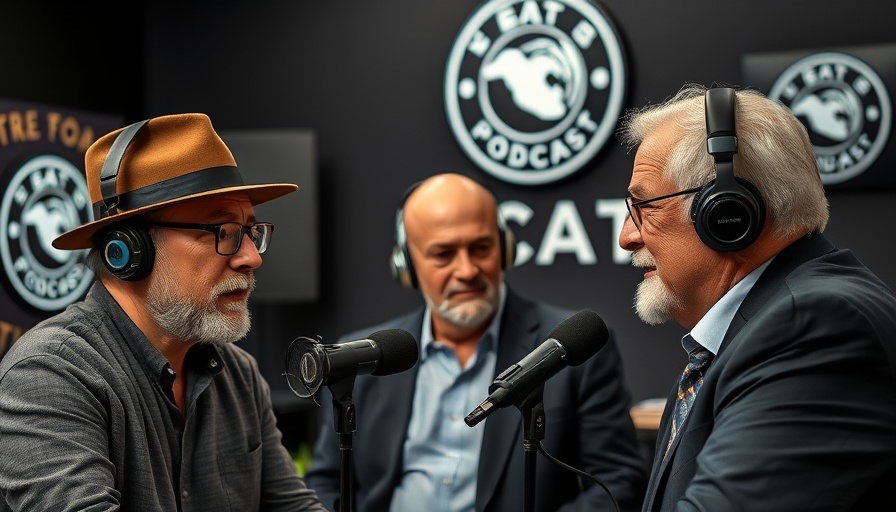
Exploring Faith: Larry Sanger’s Journey from Wikipedia Co-Founder to Christian
In the gripping AC Podcast episode featuring Larry Sanger, the co-founder of Wikipedia, listeners are taken through an unexpected journey that intertwines technology with profound spiritual awakening. Sanger, who has played a pivotal role in shaping how humanity retrieves knowledge online, has also undergone a significant personal transition—rediscovering Christianity and finding meaning in the ancient text of the Bible.
In 'AC Podcast #544 - Wikipedia Co-Founder, Larry Sanger, Searches and Finds Christ,' the conversation unveils his unexpected journey of faith in light of his technological background.
Rediscovering Knowledge in an Age of Disinformation
Sanger poses critical questions about navigating an era saturated with information and misinformation. He notes that, in the current climate, discerning truth becomes increasingly complex. With web platforms awash with contradicting claims, he emphasizes the significance of comprehensive background reading instead of superficial understanding. Sanger advocates for deeper engagement with proven sources, highlighting that education is not merely transactional but transformative.
The Role of Curiosity in Faith
Central to Sanger's narrative is the relationship between curiosity and faith. Reflecting on his childhood, he shares how his inquisitive nature fueled a quest for understanding the complexities of life and existence. This journey of questioning seamlessly transitioned into his spiritual life as he began to reevaluate his beliefs, indicating that intellectual inquiry is essential, not just in academics but in faith as well.
From Skepticism to Acceptance: A Methodological Approach
A significant aspect of Sanger's approach is what he describes as "methodological skepticism." He explains that this is not disbelief but rather a careful consideration of evidence before forming conclusions. As he began to engage with the scriptures, he aimed to understand the Bible from the perspective of believers rather than from a detached scholarly lens. This shift allows him to appreciate the text's coherence and relevance, leading ultimately to acceptance of its teachings.
Faith as a Journey, Not a Destination
Sanger illustrates that faith is not a one-time event marked by a 'come to Jesus' moment, but rather a gradual process filled with insights and struggles. By viewing faith through a lens of understanding—and not merely acceptance—he emphasizes that questions and uncertainties often lead to deeper convictions. This aligns closely with the experiences of many, illustrating that faith can evolve through rigorous exploration.
The Importance of Preserving Knowledge
In a world where information can easily be lost, Sanger passionately speaks about the need to preserve the written word. He alludes to the staggering reality that there are only two copies of the Internet Archive, which holds over 1.5 million public domain books. For Sanger, safeguarding the world's knowledge is not just about logistics; it’s about ensuring the availability of wisdom for future generations.
Engaging Young Minds: The Value of the Written Word
For parents and educators, Sanger’s perspectives are invaluable. He advocates for fostering a love for reading among youth, positing that deep reading enriches understanding and transforms lives. In our fast-paced digital age, he suggests that striking a balance between digital consumption and physical reading can promote clarity and depth in comprehension, particularly in spiritual matters.
Sanger’s journey from a tech pioneer to a renewed follower of Christ serves as a powerful illustration of how intellectual curiosity can lead to spiritual fulfillment. His insights challenge all of us—believers and seekers alike—to engage deeply with the materials that shape our understanding of the world and God.
As we consider the intersection of knowledge, faith, and technology, let us cultivate a deep hunger for understanding that honors both the mind and the spirit. May we embrace Sanger’s challenge to preserve books, explore our faith gracefully, and engage with the world thoughtfully.
Explore more about Larry Sanger’s work at encyclosphere.org and delve into how you can contribute to preserving the wisdom of the past for future generations.
 Add Row
Add Row  Add
Add 








Write A Comment